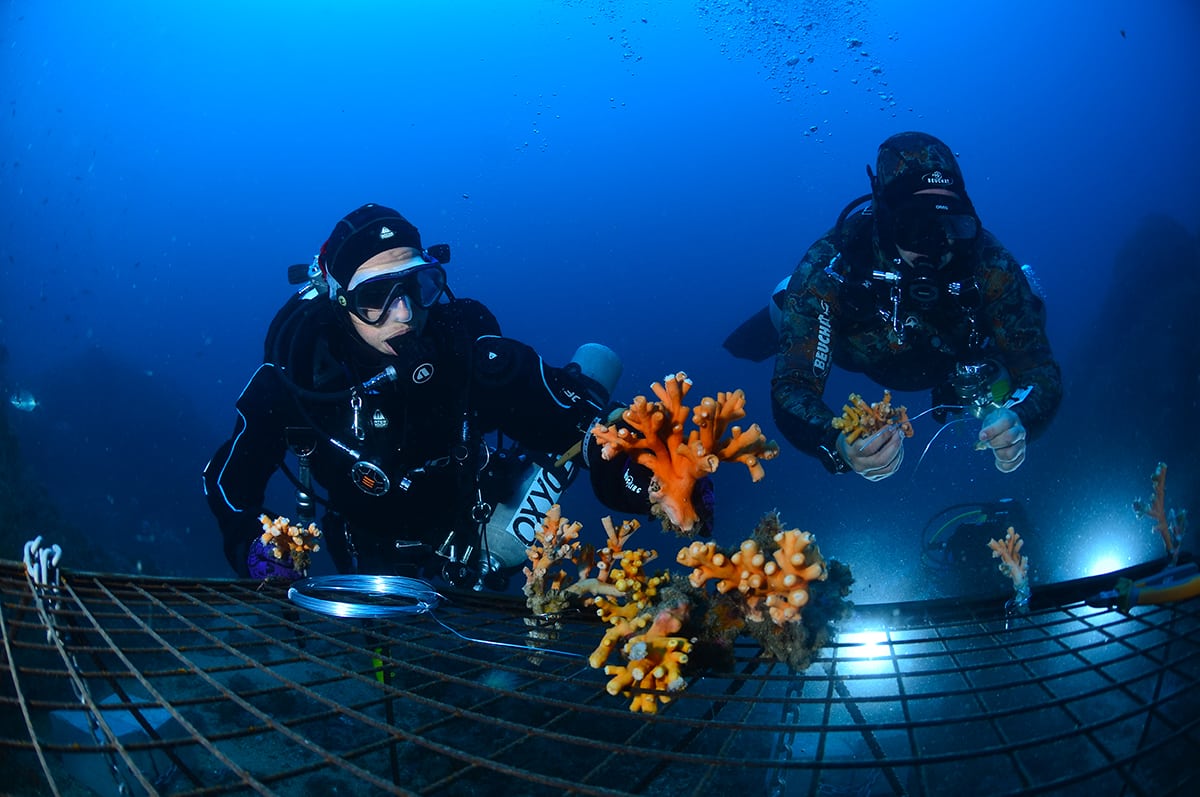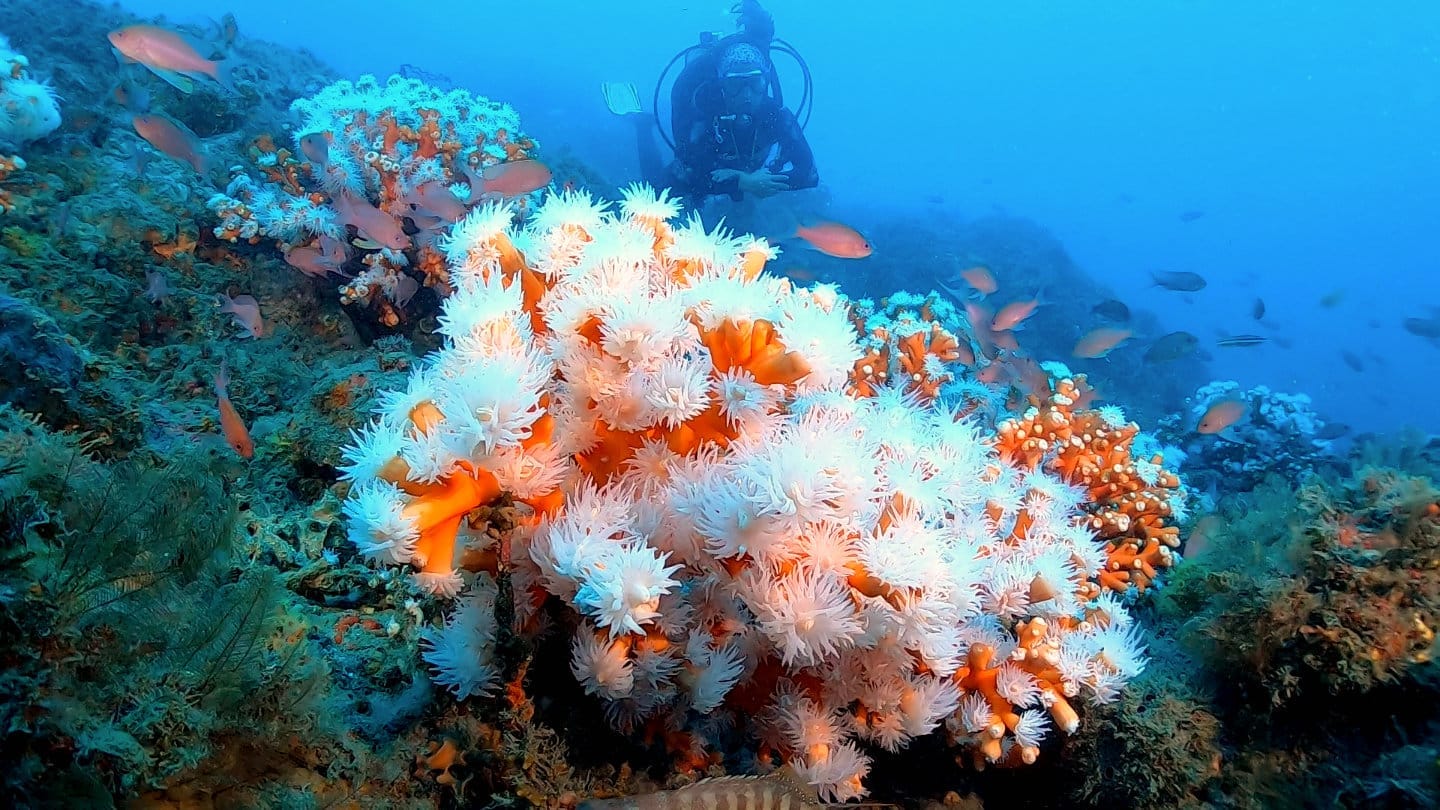The first coral nursery of the Mediterranean Sea

As you may know already, we are collaborating with the local Spanish non-profit Coral Soul on an innovative research project aimed at restoring the coral ecosystem in southern Spain.
After long months of work, the team led by biologist Marina Palacios has taken an important step in the research and restoration of chandelier coral. The project not only repopulates this species in its habitat, but has also created a coral nursery to retrieve the most damaged specimens, which until now seemed impossible.
The advantages of this project are manifold. Corals are the basis of the ecosystem because several marine species, in one way or another, depend on them to reproduce, feed … Cold-water coral ecosystems can shelter up to 29 times more wildlife compared to areas without corals. Therefore, the recovery of corals is essential to help protect this marine area with such rich biodiversity.

A unique project in the Mediterranean Sea
The project takes place in the conservation area of the cliffs and seabed of Punta de la Mona, on the coast of Granada, an area of high ecological value. Several types of cold-water corals can be found here, including the chandelier coral (Dendrophyllia ramea), an endangered species which we knew little about until now.
On site, the non-profit Coral Soul found a very damaged ecosystem, with hundreds of broken corals mainly due to the high concentration of abandoned fishing gear in the area. These nets and lines particularly affect the chandelier coral, which gets tangled up in it. When the coral breaks, the fragment falls to the bottom, and opportunistic organisms (epibionts) cover it so that its polyps cannot feed and it gradually dies.
In order to better understand the biology and pressures on this species of coral in the area, preliminary studies were first carried out in collaboration with local universities. Topics covered include the behavior of polyps, the structure of coral populations, the organisms that affect this coral species and the composition of pollutants in the area. Currently the analyses are being finalised with the academic partners. In practical terms, work protocols, as well as the training of a team of divers were carried out by the local team.

What concrete actions are we carrying out on site?
The project includes various actions to facilitate the recovery of the coral ecosystem in the Punta de la Mona area. First, a seabed cleanup is carried out to remove fishing gear and other debris from the coasts, following specific protocols. Then the coral colonies are freed from the fishing gear, cleaned, and the dead parts, sediment and epibionts are removed. Broken colonies that are in good condition are transplanted directly into the wild, and corals in poorer condition are transplanted onto nurseries.
Nurseries provide a safe environment with no risk of sediments or epibionts for corals. These structures are adapted to allow proper care, monitoring and maintenance until corals are healthy, and clogged or dead polyps are regenerated. Once the corals have recovered, they will be reintroduced into the natural environment in areas that are favorable for their development.
Find out more about our project in the Mediterranean Sea here.
Copyright of photos : Javier Sánchez


